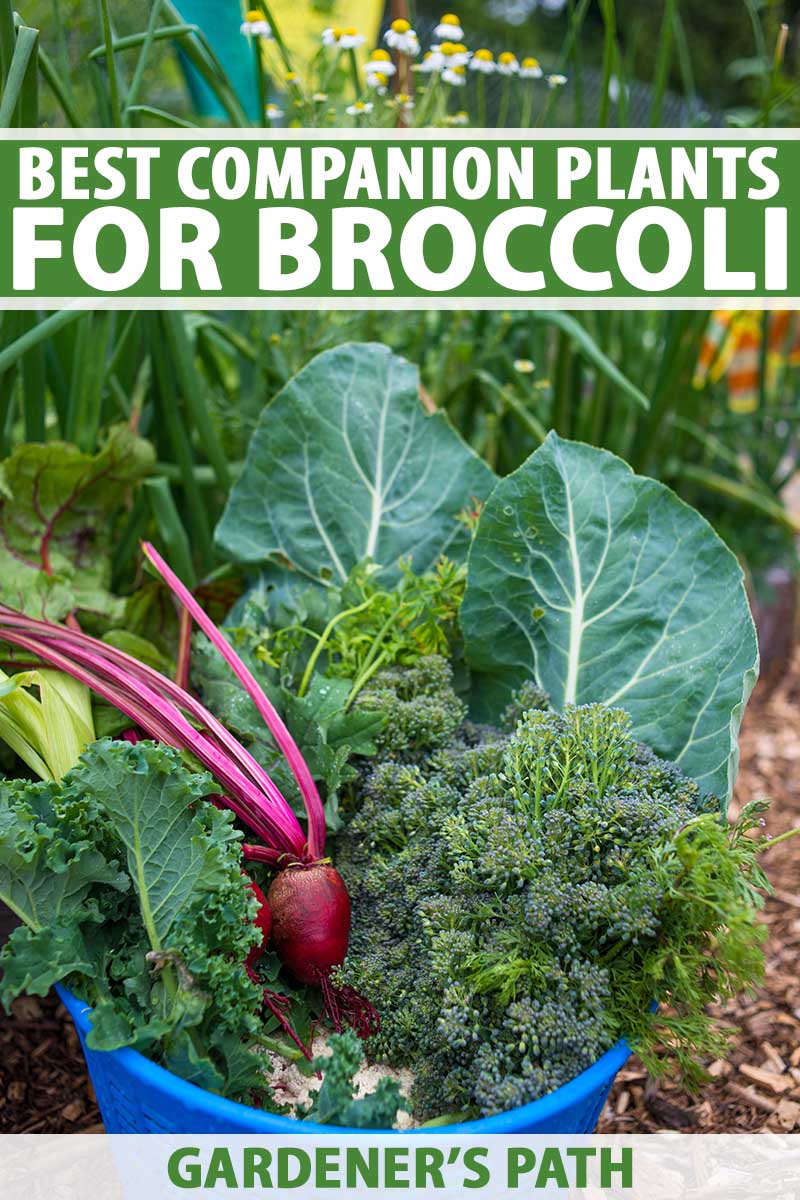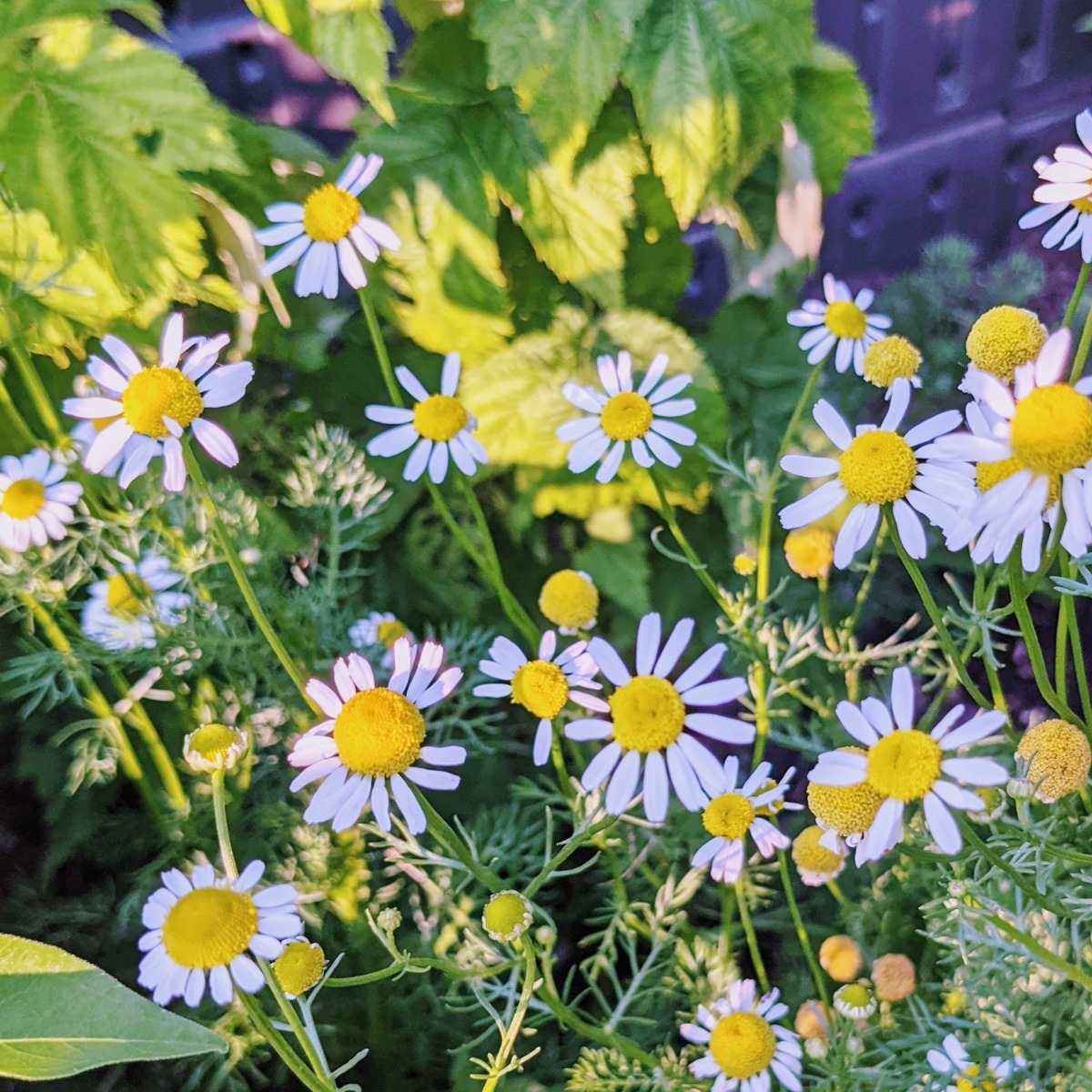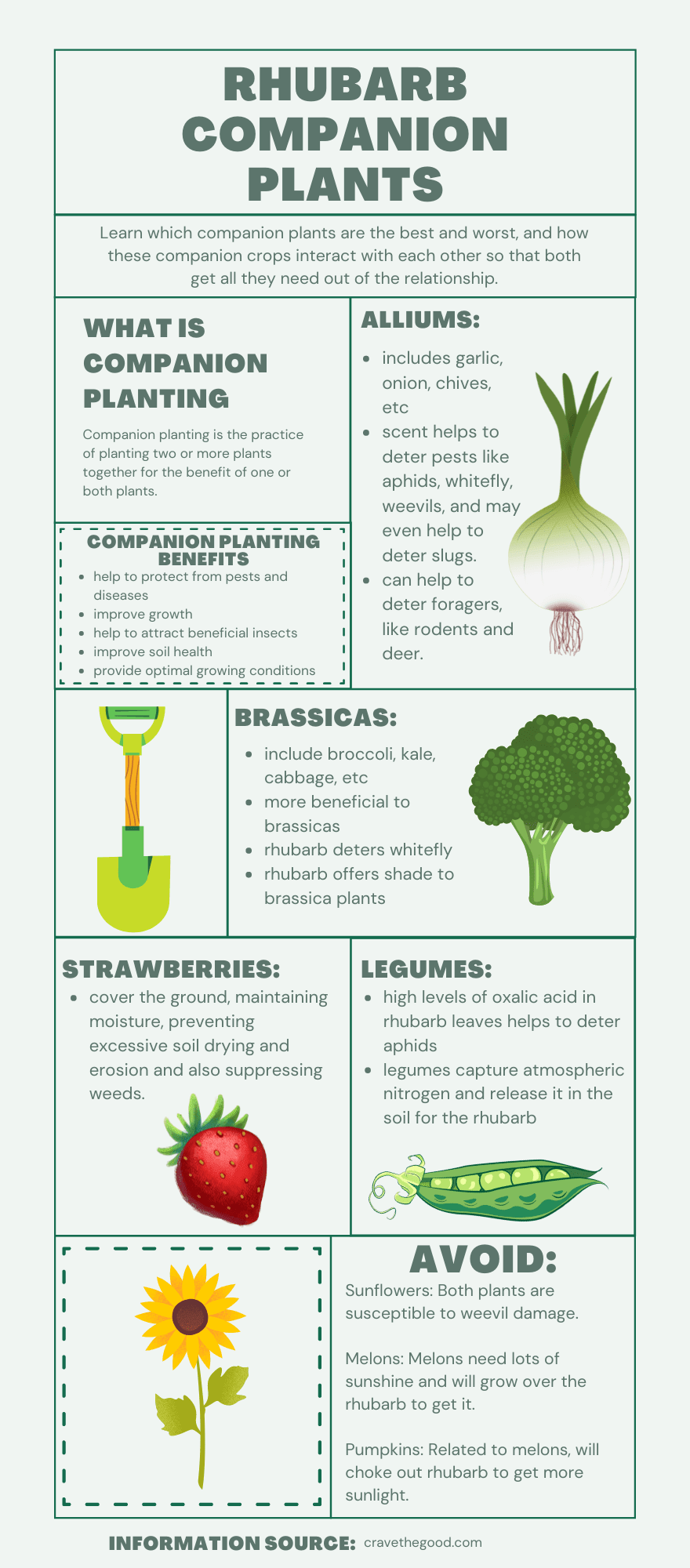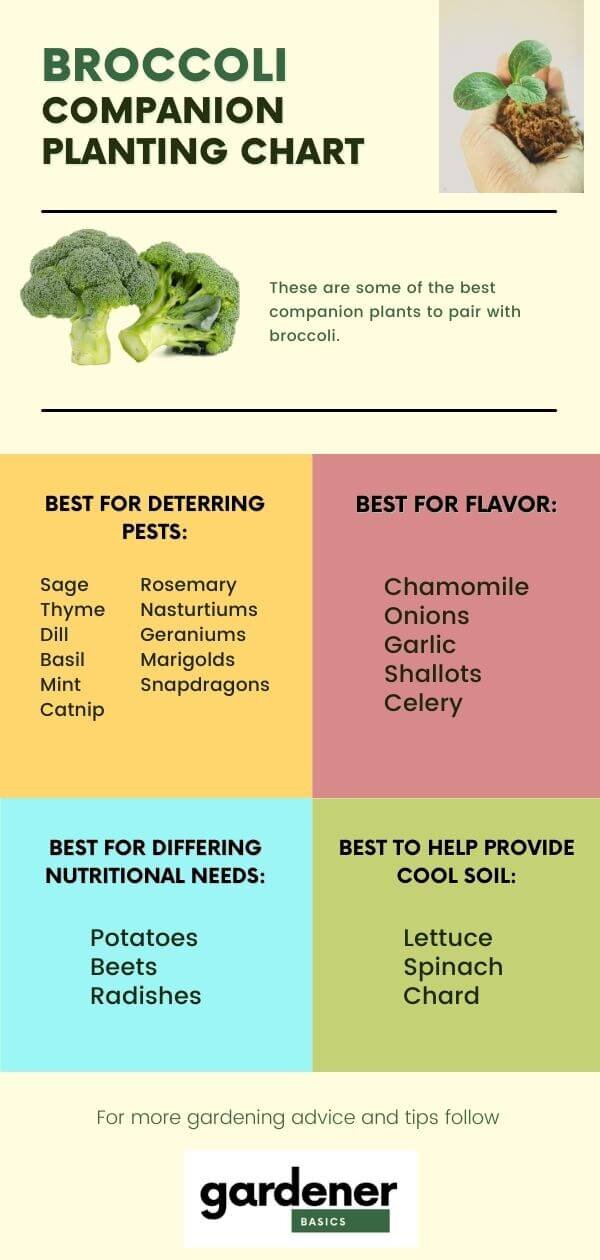The Ultimate Guide To Companion Planting Broccoli
The Ultimate Guide to Companion Planting Broccoli
Broccoli is a delicious and nutritious vegetable that is easy to grow in the garden. But did you know that you can improve your chances of success by companion planting broccoli with other plants?
Companion planting is the practice of planting certain plants together that benefit each other. There are many different companion plants that can be grown with broccoli, but some of the best include:
- Beets: Beets and broccoli are both heavy feeders, so they can help each other to access nutrients in the soil. Beets also help to repel pests, such as cabbage loopers.

- Celery: Celery helps to deter pests, such as aphids and carrot rust flies. It also helps to improve the flavor of broccoli.

- Chamomile: Chamomile is a fragrant herb that helps to repel pests, such as cabbage moths. It also helps to improve the flavor of broccoli.

- Lettuce: Lettuce helps to suppress weeds and attract beneficial insects. It also helps to improve the flavor of broccoli.
- Potatoes: Potatoes and broccoli are both heavy feeders, so they can help each other to access nutrients in the soil. Potatoes also help to repel pests, such as Colorado potato beetles.

- Rhubarb: Rhubarb helps to repel pests, such as cabbage moths. It also helps to improve the flavor of broccoli.

- Rosemary: Rosemary is a fragrant herb that helps to repel pests, such as cabbage moths. It also helps to improve the flavor of broccoli.

- Shallots: Shallots help to repel pests, such as aphids and carrot rust flies. They also help to improve the flavor of broccoli.

- Spinach: Spinach helps to suppress weeds and attract beneficial insects. It also helps to improve the flavor of broccoli.
In addition to these plants, there are a few other that should be avoided when companion planting broccoli. These include:
- Tomatoes: Tomatoes and broccoli are both heavy feeders, so they can compete for nutrients in the soil.
- Eggplant: Eggplant and broccoli are both susceptible to the same pests and diseases, so planting them together can increase the risk of infection.
- Lima beans: Lima beans can produce a toxin that can stunt the growth of broccoli.
- Peppers: Peppers and broccoli are both susceptible to the same pests and diseases, so planting them together can increase the risk of infection.
- Pole beans: Pole beans can produce a toxin that can stunt the growth of broccoli.
- Snap beans: Snap beans can produce a toxin that can stunt the growth of broccoli.
- Squash: Squash can compete with broccoli for water and nutrients.
- Strawberries: Strawberries can attract pests that can also damage broccoli.
By planting broccoli with the right companion plants, you can improve your chances of success. These plants will help to deter pests, improve the flavor of broccoli, and even help to access nutrients in the soil.
Broccoli is a delicious and nutritious vegetable that is easy to grow. But did you know that there are certain plants that can help broccoli grow better? These are called companion plants, and they can provide a number of benefits to broccoli, such as:
- Reducing pest pressure. Some companion plants, such as chamomile and nasturtiums, have strong scents that can repel pests that damage broccoli, such as cabbage worms and aphids.
- Improving soil quality. Other companion plants, such as beans and peas, can help to improve the nitrogen content of the soil, which can benefit broccoli's growth.
- Providing shade. Some companion plants, such as lettuce and spinach, can provide shade for broccoli during the hot summer months, which can help to prevent the broccoli from bolting.
If you are looking to grow the best broccoli possible, it is a good idea to choose companion plants that will benefit your broccoli plants. Garden Wiki has a comprehensive list of good companion plants for broccoli, as well as information about how to plant and care for these plants.
FAQ of good companion plants for broccoli
Q: What are some good companion plants for broccoli?
A: There are many good companion plants for broccoli, but some of the most popular include:
- Alliums: Garlic, onions, and chives all have strong scents that repel pests that can damage broccoli, such as aphids, cabbage moths, and cabbage loopers.
- Herbs: Basil, dill, mint, and rosemary all help to deter pests and attract beneficial insects that help to pollinate broccoli.
- Leafy greens: Lettuce, spinach, and Swiss chard can help to shade the roots of broccoli, keeping them cool and preventing them from rotting.
- Root vegetables: Beets, carrots, and radishes can help to improve the soil quality for broccoli, making it more nutrient-rich and easier for the plants to grow.
- Flowers: Marigolds, nasturtiums, and chamomile all attract beneficial insects that help to control pests.
Q: What are some bad companion plants for broccoli?
A: Some plants that should not be planted near broccoli include:
- Cabbage: Broccoli is a member of the Brassica family, and planting it near other Brassicas can encourage the spread of diseases.
- Kale: Kale and broccoli are both susceptible to the same pests, so planting them near each other can make it more difficult to control pests.
- Peas: Peas can compete with broccoli for nutrients, so it is best to plant them in separate areas.
- Tomatoes: Tomatoes can attract pests that can also damage broccoli, so it is best to plant them in separate areas.
- Potatoes: Potatoes can harbor a fungus that can damage broccoli, so it is best to plant them in separate areas.
Q: What is the best time of year to plant broccoli?
A: Broccoli can be planted in the spring or fall, but it is best to plant it in the fall if you live in a cold climate. This is because broccoli will need about 60-70 days of cool weather to mature.
Q: What are the best growing conditions for broccoli?
A: Broccoli needs full sun and well-drained soil that is rich in organic matter. The soil pH should be between 6.0 and 6.5.
Q: How do I care for broccoli?
A: Broccoli is a relatively easy plant to care for. It needs regular watering, especially during the hot summer months. It is also important to fertilize broccoli every few weeks with a balanced fertilizer.
Image of good companion plants for broccoli
Here are 5 images of good companion plants for broccoli from Pinterest:
- Beetroot. Beetroot and broccoli are both heavy feeders, so they can help each other out by using different nutrients from the soil. Beetroot also helps to suppress pests, such as cabbage moths.

- Celery. Celery is a good companion plant for broccoli because it helps to repel pests, such as aphids and slugs. It also helps to improve the flavor of the broccoli.
- Chamomile. Chamomile is a good companion plant for broccoli because it helps to attract beneficial insects, such as ladybugs and hoverflies. These insects help to control pests, such as aphids and cabbage moths.

- Lettuce. Lettuce and broccoli are both cool-season crops, so they can be planted together in the same garden bed. Lettuce also helps to suppress weeds, which can compete with broccoli for nutrients and water.

- Potatoes. Potatoes and broccoli are both heavy feeders, so they can help each other out by using different nutrients from the soil. Potatoes also help to suppress pests, such as Colorado potato beetles.


Post a Comment for "The Ultimate Guide To Companion Planting Broccoli"